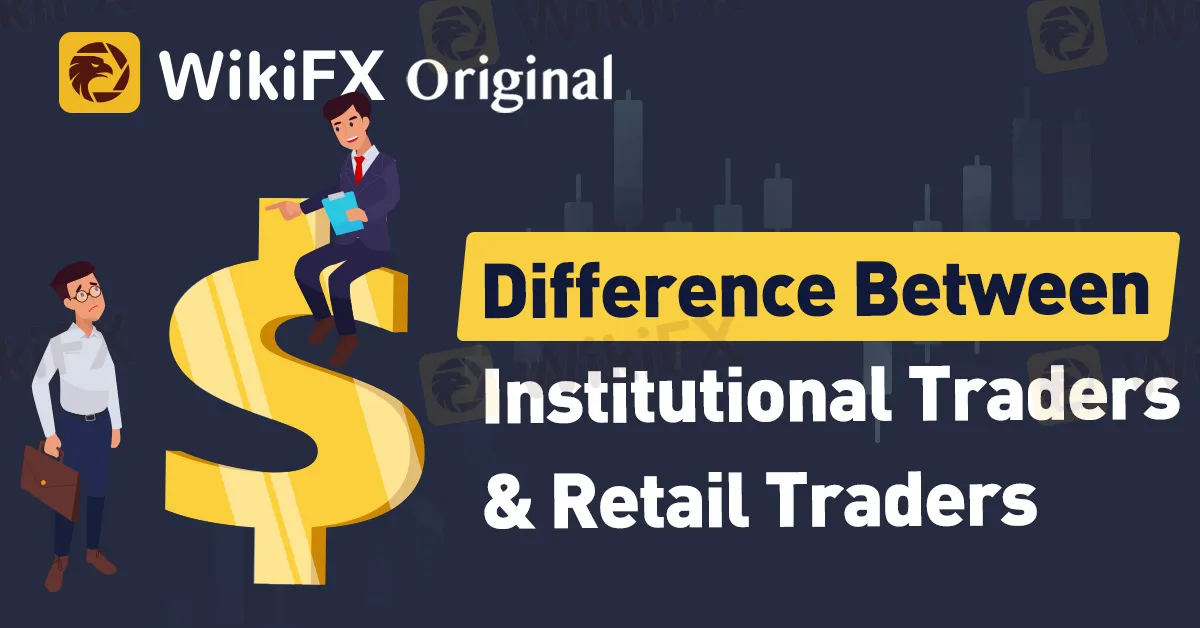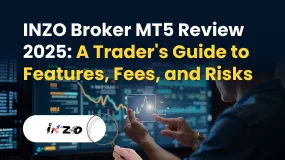简体中文
繁體中文
English
Pусский
日本語
ภาษาไทย
Tiếng Việt
Bahasa Indonesia
Español
हिन्दी
Filippiiniläinen
Français
Deutsch
Português
Türkçe
한국어
العربية
Difference Between Institutional Traders & Retail Traders
Abstract:The article explores the differences between institutional traders and retail traders, highlighting their unique advantages, access to securities, and potential paths of transition between the two.

The world of securities trading encompasses a spectrum of approaches, from the simplicity of retail trading to the complexities of institutional trading. Retail traders, often individuals, engage in personal securities transactions, while institutional traders manage accounts for groups or institutions such as pension funds, mutual fund families, insurance companies, and ETFs.
Although advancements in technology and access to information have narrowed the advantages once held by institutional traders, certain distinctions remain. Institutional traders still enjoy access to a wider range of securities, the ability to negotiate fees, and assurances of best price and execution.

Institutional traders can delve into complex transactions like forwards and swaps that are typically beyond the reach of retail traders. Moreover, institutions are often presented with investment opportunities in IPOs and can negotiate basis point fees while avoiding marketing or distribution expenses.
Given their substantial trading volume, institutional traders possess the power to significantly impact the share price of a security. To mitigate this influence, they may split trades among various brokers or execute them over time.
The size of an institutional fund influences the market capitalization of the securities it owns, with larger funds generally favoring higher-cap stocks. Smaller-cap stocks pose challenges for institutional traders as their investment might result in majority ownership or reduced liquidity due to limited counterparty participation.

Retail traders primarily engage in stocks, bonds, options, and futures, with limited access to IPOs. They typically trade in round lots, although the flexibility to trade any number of shares exists. Retail traders may encounter higher trading costs if they utilize brokers with flat fees per trade along with marketing and distribution expenses. Given the relatively smaller number of shares they trade, retail traders have minimal impact on security prices.
Unlike institutional traders, retail traders are more inclined to invest in small-cap stocks due to their affordability, facilitating diversified portfolios comprising multiple securities.
Interestingly, retail traders often transition into institutional traders. Starting with personal trading accounts, successful retail traders may expand their scope to include trades for friends and family. Continued success and the accumulation of capital from other investors can lead to the establishment of a small investment fund, paving the way for the transformation into institutional traders.
While institutional traders and retail traders have distinct characteristics, their paths can intertwine as retail traders progress towards managing institutional-level portfolios, exemplifying the evolutionary nature of the trading landscape.

Disclaimer:
The views in this article only represent the author's personal views, and do not constitute investment advice on this platform. This platform does not guarantee the accuracy, completeness and timeliness of the information in the article, and will not be liable for any loss caused by the use of or reliance on the information in the article.
Read more

Fidelity Exposed: Traders Complain About Withdrawal Denials, Frozen Accounts & Platform Glitches
Does Fidelity Investments prevent you from accessing funds despite numerous assurances on your requests? Do you witness an account freeze by the US-based forex broker every time you request withdrawal access? Do you struggle with an unstable trading platform here? Is the slow Fidelity customer service making you face forced liquidation? These issues haunt traders, with many of them voicing their frustration on several broker review platforms such as WikiFX. In this Fidelity review article, we have shared quite a few complaints for you to look at. Read on!

Exposing The Trading Pit: Traders Blame the Broker for Unfair Withdrawal Denials & Account Blocks
Did you receive contradictory emails from The Trading Pit, with one approving payout and another rejecting it, citing trading rule violations? Did you purchase multiple trading accounts but receive a payout on only one of them? Did The Trading Pit prop firm refund you for the remaining accounts without clear reasoning? Did you face account bans despite using limited margins and keeping investment risks to a minimum? These are some raging complaints found under The Trading Pit review. We will share some of these complaints in this article. Take a look.

M&G Review: Traders Report Fund Scams, Misleading Market Info & False Return Promises
Applying for multiple withdrawals at M&G Investments but not getting it into your bank account? Do you see the uncredited withdrawal funds out of your forex trading account on the M&G login? Does the customer support service fail to address this trading issue? Does the misleading market information provided on this forex broker’s trading platform make you lose all your invested capital? Were you lured into investing under the promise of guaranteed forex returns? These issues have become highly common for traders at M&G Investments. In this M&G review article, we have echoed investor sentiments through their complaint screenshots. Take a look!

INZO Broker MT5 Review 2025: A Trader's Guide to Features, Fees and Risks
INZO is a foreign exchange (Forex) and Contracts for Difference (CFD) brokerage company that started working in 2021. The company is registered in Saint Vincent and the Grenadines and regulated offshore. It focuses on serving clients around the world by giving them access to popular trading platforms, especially MetaTrader 5 (MT5) and cTrader. The company offers different types of trading instruments, from currency pairs to cryptocurrencies. It aims to help both new and experienced traders. Read on to know more about it.
WikiFX Broker
Latest News
2 Malaysians Arrested in $1 Million Gold Scam Impersonating Singapore Officials
Moomoo Singapore Opens Investor Boutiques to Strengthen Community
OmegaPro Review: Traders Flood Comment Sections with Withdrawal Denials & Scam Complaints
An Unbiased Review of INZO Broker for Indian Traders: What You Must Know
BotBro’s “30% Return” Scheme Raises New Red Flags Amid Ongoing Fraud Allegations
The 5%ers Review: Is it a Scam or Legit? Find Out from These Trader Comments
WikiEXPO Dubai 2025 Concludes Successfully — Shaping a Transparent, Innovative Future
Admirals Cancels UAE License as Part of Global Restructuring
Forex Expert Recruitment Event – Sharing Insights, Building Rewards
Exness Broker Expands in South Africa with Cape Town Hub
Currency Calculator



